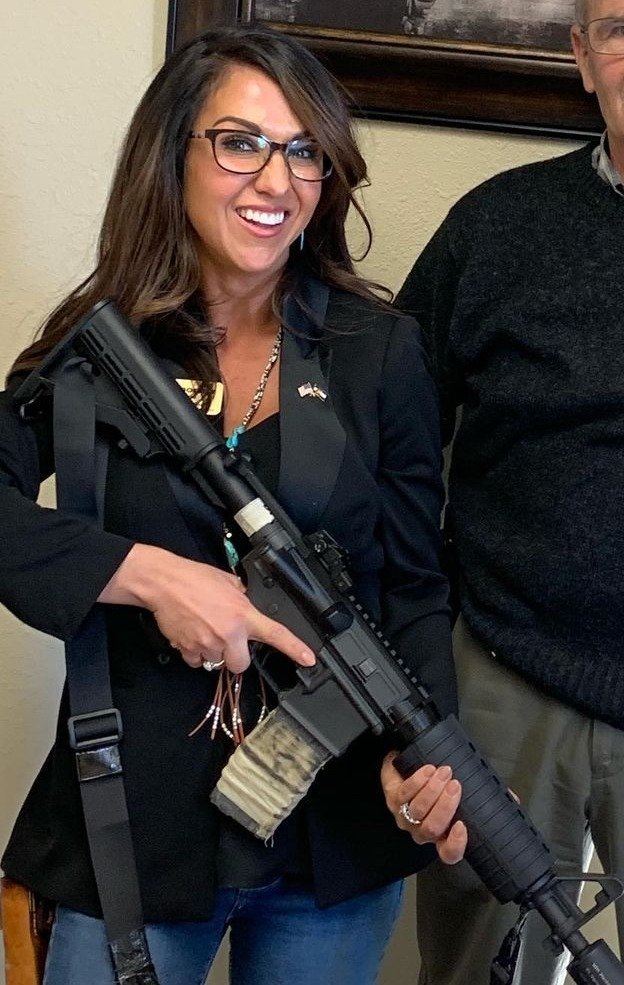Can political discourse truly withstand the test of time and public scrutiny? Lauren Boebert, a Republican congresswoman from Colorado, and Tim Walz, the Democratic governor of Minnesota, have emerged as central figures in recent debates. Their interactions, particularly concerning a controversial quote tied to Detroit's automotive industry, have ignited fervent discussions across the nation. The question remains: Are these leaders merely engaging in political posturing, or are they genuinely addressing critical issues impacting their constituents?
Lauren Boebert, known for her outspoken nature, has once again found herself at the heart of national attention. Her recent comments about the automotive sector in Detroit have drawn both praise and criticism. On one hand, supporters argue that she is highlighting the need for domestic manufacturing and job creation. Critics, however, suggest that her statements lack depth and fail to address the complexities of global trade policies. Meanwhile, Governor Tim Walz counters with a more measured approach, emphasizing collaboration between state governments and private industries to foster innovation and economic growth. Both perspectives offer valuable insights into how policymakers view the future of American manufacturing.
| Name | Lauren Boebert |
|---|---|
| Date of Birth | February 25, 1981 |
| Place of Birth | Greeley, Colorado |
| Political Affiliation | Republican Party |
| Career Highlights | Served as a bartender before entering politics; Elected to U.S. House of Representatives in 2020 |
| Key Issues | Second Amendment rights, border security, domestic manufacturing |
Elon Musk, another prominent figure often intertwined with discussions on industrial policy, recently made headlines when his Tesla Gigafactory plans were questioned by environmental groups. While not directly involved in the Boebert-Walz debate, Musk's influence on the electric vehicle market cannot be overlooked. His ventures exemplify the potential for technological advancements to reshape traditional industries. However, critics warn against over-reliance on corporate solutions, advocating instead for balanced approaches that prioritize worker welfare alongside innovation.
The so-called Detroit Quote controversy stems from differing interpretations of historical data regarding automobile production trends. Some interpret it as evidence supporting protectionist measures, while others see it as an oversimplification of complex economic realities. In this context, Boebert's stance aligns closely with those advocating for stricter tariffs to protect American jobs. Conversely, Walz advocates for strategic partnerships aimed at enhancing competitiveness rather than isolationism. Both arguments carry weight but require nuanced understanding to fully appreciate their implications.
Historical precedents play a crucial role in shaping current debates. For instance, President Donald Trump's administration pursued aggressive tariff policies intended to revitalize domestic manufacturing sectors. While proponents point to increased steel production as proof of success, detractors highlight rising costs for consumers and businesses reliant on imported materials. Similarly, Hyundai's decision to establish a new steel plant in Louisiana underscores shifting dynamics within the global supply chain. Such developments underscore the importance of balancing short-term gains with long-term sustainability goals.
In academia, experts like Greig Mordue contribute valuable perspectives through research focused on manufacturing policy. According to Professor Mordue, successful transitions toward advanced manufacturing depend heavily on workforce training programs and infrastructure investments. These elements must complement technological innovations to ensure broad-based prosperity. Furthermore, he cautions against adopting simplistic solutions that overlook systemic challenges facing modern industries.
Public reactions to these debates vary widely depending on individual priorities and values. Social media platforms frequently amplify extreme viewpoints, sometimes distorting nuanced discussions into polarized exchanges. Memes referencing past incidents involving Boebert, such as locking her keys inside her car, serve as reminders of how easily personal anecdotes can overshadow substantive policy conversations. Yet, amidst the noise, genuine efforts to bridge divides persist. Collaborative initiatives bringing together stakeholders from diverse backgrounds demonstrate the possibility of constructive dialogue even in contentious environments.
As discussions surrounding the Detroit Quote continue, several key takeaways emerge. First, effective policymaking demands comprehensive analysis capable of addressing multiple dimensions simultaneously. Second, fostering mutual respect among opposing viewpoints enhances opportunities for compromise and consensus-building. Finally, prioritizing evidence-based approaches ensures decisions reflect actual conditions rather than ideological preferences alone.
Beyond personalities and rhetoric, what truly matters is whether proposed solutions yield tangible benefits for affected communities. By focusing on shared objectives—such as creating high-quality jobs, promoting environmental stewardship, and ensuring equitable access to resources—leaders like Boebert and Walz can transcend partisan divides and work towards common goals. Ultimately, the challenge lies in translating lofty aspirations into actionable strategies that deliver measurable results for all Americans.
| Topic | Lauren Boebert's Position | Tim Walz's Position |
|---|---|---|
| Automotive Industry | Supports protectionist measures; emphasizes domestic manufacturing | Advocates for collaborative partnerships; focuses on innovation |
| Tariff Policies | Favors stricter tariffs to safeguard American jobs | Prefers balanced approaches considering global competition |
| Environmental Concerns | Questions extent of climate change impact on industry | Emphasizes sustainable practices alongside economic growth |
| Workforce Development | Highlights importance of vocational training programs | Supports comprehensive education reforms |



